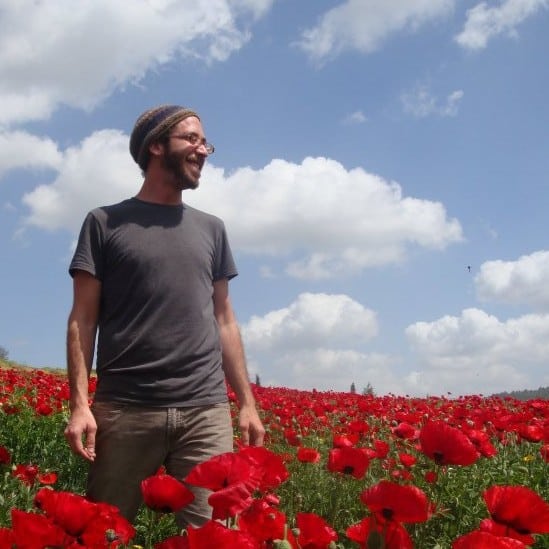by Yigal Deutscher
There is a saying by the Rabbis, ‘Those who prepare before Shabbat will eat on Shabbat; those who did not prepare before Shabbat, what will they have to eat on Shabbat? (Avoda Zara 3a).’ Well, in terms of comparing the Shabbat and Shmita cycle as parallels of one another, we are about to enter, collectively, into the Friday of the Shmita Cycle, as we near Rosh Hashana and the 6th year of this current cycle. Or, if we want to be specific, as days begin in the Jewish calendar at the evening time, we are just about late in the day on Thursday, sunset time.
Either way, we are getting quite close to Shabbat. And that comes with it a specific transition point, a moment in time for one process to end, and another to begin. The patterns of the 6 days, the culture of the 6 years, falls away to welcome a whole new way to engage with time and space. Bo’ei Kallah. Welcome, Beloved Bride. And here we are, getting ready to stand under the Chupah. Are we ready for this? What will we have ‘to eat’ on this Shabbat, to feel satiated and sustained for this transition? Even if the Shabbat analogy does not work for you…that is fine…but then lets apply the Rabbis saying to something else, perhaps going on a long travel vacation, preparing for a wedding, something like this. To walk into such moments without forethought is to welcome a culture shock, and perhaps, chaos.
The Rabbis took this quite seriously: Friday was a day dedicated towards planning and preparing to welcome in Shabbat, in all her glory. Ceasing to work by mid-day, cleaning house and body, purchasing and cooking the finest foods, doing Torah study, prayer, and immersing in the Mikvah. Man, Woman, and child each with their own tasks and intentions, all so the Shabbat candles could be lit with ease, in a sacred manner. Because for such Rabbis and their families, if they did not do these things, then literally, there would not be what to eat on the Shabbat day. And Shabbat is a day for celebration and beauty, not suffering or scarcity. To enjoy the oneg, pleasure and bliss, of Shabbat requires foresight.
In his Dvar Torah on Parshat Behar, Rabbi David Ingber pointed out a beautiful tension in this moment, where the six days meets the seventh. Because truly it is a paradox. On the one hand, there is this intention and need for planning, for design, for focused and disciplined foresight. But what are we planning for? For the absolute opposite of anything to do with planning?! Shabbat (and Shmita) is a time to specifically not-plan, to surrender, to stop, to cease and release, to enjoy the unknown mystery of flow and the possibility of spontaneity that may arise within this temple of time. This is the joy of these Shabbat moments, to be in a space of timelessness, where you are not in control. Where you can fully allow what is meant to unfold to do so, without your own manipulating guidance. Besides for the rest and release from all the physical and business work, we are also meant to release ourselves, our psyche, our tight body and mind. And this mental and psychological release might be the greatest gift. The world will continue without you, without me, without any of us. Just sit and observe, celebrate and enjoy. This is so different than the mentality of the marketplace of the 6 days and 6 years…a mentality of planning and control.
Rabbi Ingber weaves this together quite simply and beautifully: We plan so that we can release. To release fully, to exhale with every fiber in our body and really feel free…this is an amazing psychological state to be in. For some of us, this can happen immediately, with the focus of breath, the closing of eyes, the relaxation of internal body rhythms. For others, even while doing all that, the mind is still wandering, and the noise, the worry, the distraction will not stop unless loose-ends have been resolved. For those of us in the second category, stopping and release is most enjoyed and savored when it is anticipated and designed, but not when it is forced.
Our goal on Shabbat and Shmita is not just to release but to fully enjoy it; to feel in abundance, to have food and nourishment in this period. So we are guided to plan, so that we can stop. And yes, once the day or year of the seventh arrives, regardless of where we are in the planning, we are asked to stop. Because this is a reminder: planning will in fact get you only so far. It is the marriage of planning and surrender, design and faith, together in balance and harmony, in an empowered humility, that allows for the flowering of Shabbat in all her glory.
Shmita is a national, communal, collective Shabbat, for an entire year. If we are to enter into this time period in a way that we are to fully cease next Rosh Hashana, with ease, and in faith, there is work to do now. Ideally, some of this work should have begun already on year one of the cycle. But now, as this 5th year of the cycles unfolds into the sixth year, as we enter into the ‘Friday’ of this Shmita cycle, now is the time to enter into transition, now is the moment to truly put our agenda together to be able to welcome in the aromas and tastes and pleasures of this yearlong Shabbat. How will you prepare for this time?
 Yigal Deutscher is an educator, farmer and permaculture designer. He has participated in the Adamah fellowship, and trained with the University of California, Santa Cruz (Center for Agroecology & Sustainable Food Systems), as well as with the Permaculture Research Institute in Australia. Until 2010, he was the farm manager and permaculture educator at the Chava v’Adam farm in Israel, where he also founded the Shorashim/Eco-Israel apprenticeship program. He is the founder of 7Seeds, an educational platform combining Jewish indigenous teachings & Permaculture Design strategies, as well as the manager of Hazon’s Shmita Project.
Yigal Deutscher is an educator, farmer and permaculture designer. He has participated in the Adamah fellowship, and trained with the University of California, Santa Cruz (Center for Agroecology & Sustainable Food Systems), as well as with the Permaculture Research Institute in Australia. Until 2010, he was the farm manager and permaculture educator at the Chava v’Adam farm in Israel, where he also founded the Shorashim/Eco-Israel apprenticeship program. He is the founder of 7Seeds, an educational platform combining Jewish indigenous teachings & Permaculture Design strategies, as well as the manager of Hazon’s Shmita Project.
